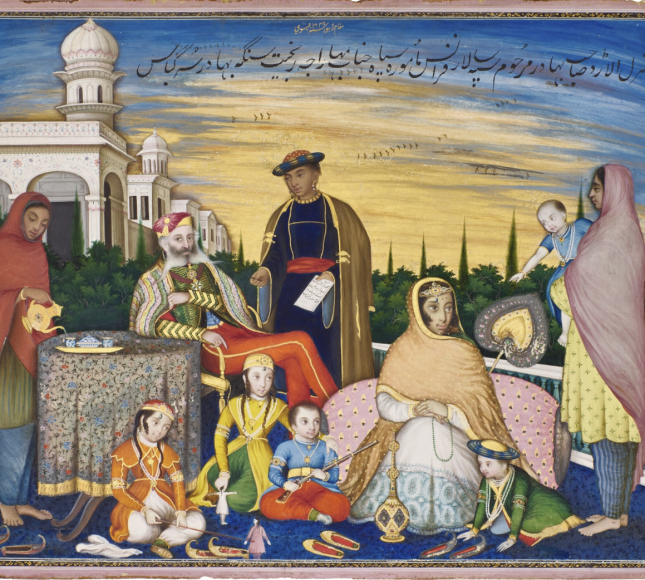ALLARD, BENJAMIN (1796-1877), step-brother of General Allard, born at Saint Tropez in 1796, was sent to Lahore in 1829 in order to replace his brother as the military adviser of Maharaja Ranjit Singh, but the two brothers failed to win the confidence of the Maharaja, who would not release General Allard from his duties. Benjamin then acted as his brother\’s deputy for various commercial missions between Lahore and Calcutta, along with Falcon and Meifredy.
In 1830 he returned to Saint Tropez to manage the General`\’ financial investments in France. From 1835 onwards he looked after Bannou Pan Dei and her children in Saint Tropez, and in 1840 he returned to Lahore with Achille Allard in order to collect the General’s inheritance. Nothing is known about him after his return to Saint Tropez, except that he died there on 6 February 1877.
Benjamin Allard (1796–1877) played a somewhat understated yet pivotal role in the commercial networks of 19th century Lahore. Born in Saint Tropez, France, Allard was originally dispatched to Lahore in 1829 with the intention of replacing his step-brother, General Allard, as a military adviser to Maharaja Ranjit Singh. However, because the Maharaja continued to rely on General Allard for military matters, Benjamin’s talents found a different avenue—he became the deputy responsible for conducting commercial missions between Lahore and Calcutta. This role placed him at the heart of the vibrant trade networks connecting South Asia with broader global commerce during a transformative period in the Sikh Empire’s history .
Beyond these trade missions, Benjamin Allard also took charge of managing significant financial operations linked to his brother’s investments. In 1830, he returned to Saint Tropez to oversee these monetary dealings, exemplifying the transcontinental nature of commerce at the time. Later, in 1840, accompanied by Achille Allard, he journeyed back to Lahore to collect the General’s inheritance—a move that underscores how economic responsibilities were entwined with personal legacy and international financial networks. Allard’s career highlights how European adventurers not only contributed militarily and politically in the region but also promoted a dynamic exchange between local markets and European investments, weaving a complex tapestry of cultural and commercial interrelations during the 19th century .



